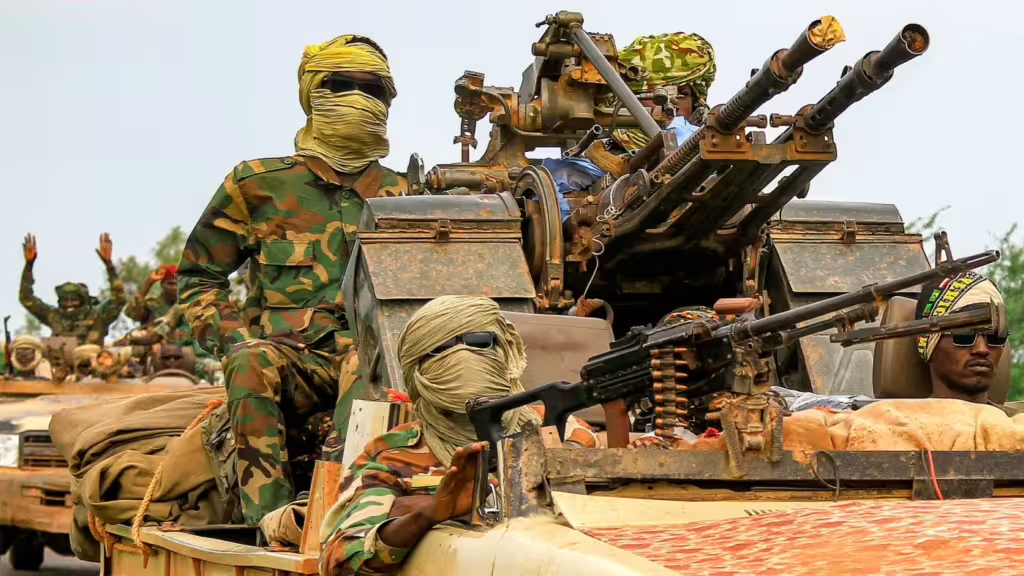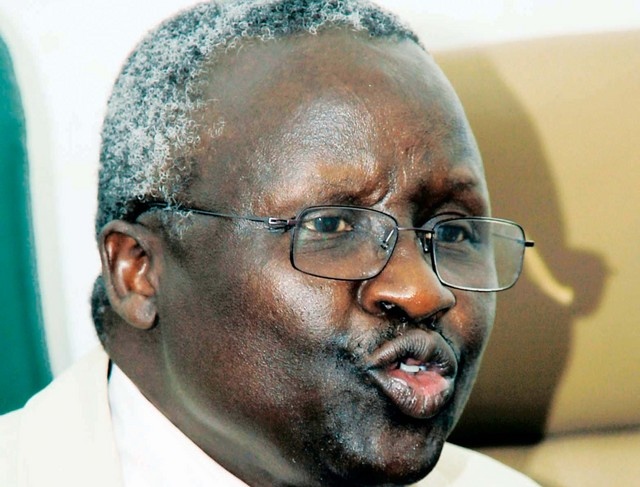South Sudan’s economy is at a great risk due the ongoing war in Sudan, a legislator has warned.
Speaking at a symposium organized by the al-Watan newspaper in Juba on Sunday, the ruling SPLM party MP Atem Garang de Kuek, said besides the stoppage of oil flow to Sudan, South Sudan was facing a challenge with the influx of the money stolen from Sudan.
“Several banks were broken into in Sudan and a lot of hard currency has been brought into South Sudan. We all know that many Sudanese nationals in Juba have opened businesses such as bakeries and shops and they have squeezed out the South Sudanese. This money laundering is a risk economically here,” he said.
“Also, thousands of stolen vehicles from Sudan have been smuggled into South Sudan. No customs and taxes were collected as they entered illegally and this is a risk to our economy. Also, not all those who entered South Sudan are innocent, some of them are criminals and this is one of the security challenges posed by the war,” he added.
Earlier this year, Sudan’s military rulers declared a force majeure on loading South Sudan’s Dar Blend crude oil due to a rupture in an oil pipeline in Khartoum. The Dar Petroleum Oil Company is one of the main oil producers in South Sudan. It is owned by the China National Petroleum Corporation, Petronas of Malaysia and other companies.
The pipeline rupture came amid the continuing war in Sudan between the Sudanese Armed Forces and the Rapid Support Forces (RSF).
South Sudan relies on Sudan’s pipelines and refineries, as well as Port Sudan on the Red Sea, to export its 150,000 barrels of oil per day. The war has significantly damaged the country’s oil infrastructure, including the major Al-Jaili refinery, thereby threatening South Sudan’s oil exports, according to reports.

Atem, a former deputy Speaker of the Sudan parliament before South Sudan’s independence in 2011, said many Sudanese skilled workers had sought refuge in South Sudan, posing a threat to the local professionals who lack similar skills.
“One of the security challenges is the proliferation of arms along the border. As you all know, the South Sudan- Sudan border is about 2,000km and this means guns and ammunition will enter South Sudan without barriers,” he said.
Atem urged the parties to the Sudan conflict to seek dialogue to end the devastating war.
“I am saying this because if either side is defeated militarily, it can enter South Sudan and cause a lot of security problems to us. We fought as a government with the SPLM-IO, but we sat down and solved the problem because we are brothers and sisters,” he said.
The SPLM official underscored that South Sudan had learnt a lesson from the Sudan war that putting all eggs in one basket should be avoided.
“We relied on Sudan after independence because of the shared history. Although there is a shared history, countries work for their interests. We did not do our assignment as South Sudanese after independence as landlocked countries such as Rwanda and Burundi,” he said.
“We expect more discussions about the role of South Sudan in Sudan, especially from the IGAD envoy to Sudan, Lawrence Korbandy,” he said.
South Sudan gained independence from Sudan in 2011. The country is currently facing tremendous difficulties after the closure of its trade routes for oil and other goods in Sudan.
Oil is responsible for 90% of South Sudan’s revenue and nearly all of its exports, the World Bank noted in a 2022 report.




